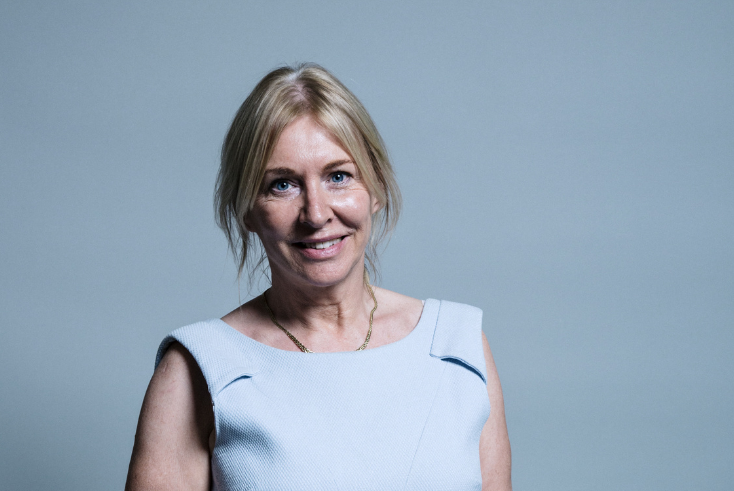Nadine Dorries appears unsure of how Channel 4 is funded in select committee hearing


Nadine Dorries stumbled on the source of Channel 4’s funding in a her first appearance before the Culture Select Committee in Parliament.
The Secretary of State for Digital, Culture, Media and Sport (DCMS) was questioned by MPs on many topics including the future ownership of Channel 4.
The Government is currently considering proposals to privatise the public service broadcaster having launched a consultation that closed in September.
Dorries, who is leading the department in charge of the privatisation policy, appeared to be under the impression that Channel 4 receives taxpayer money.
She told MPs: “I would argue that to say that just because Channel 4 has been established as a public service broadcaster and just because it is in receipt of public money, we should never audit the future of Channel 4 and we should never evaluate how Channel 4 looks in the future and whether or not it is a sustainable and viable model. It is quite right that the Government should do that.”
Damian Green, Conservative MP for Ashford, then clarified that Channel 4 is not like the BBC in that it is not in receipt of licence fee money and makes its money from its commercial operations (timestamp: 20.52- 25.00 in the video, above).
Even though Channel 4 is a publicly-owned company, it must be run as a not-for-profit commercial operation and is mostly funded by advertising.
Dorries went on to emphasise that currently the department was “evaluating the future” of Channel 4 as a public broadcaster, which was the “right and proper” responsibility of the Government, acknowledging it was different to the BBC but a decision about its future privatisation had not yet been made.
In her first appearance before a select committee in her eight weeks as Culture Sec, Dorries also discussed a recent story where The Sunday Times maintained she had threatened to cut BBC’s funding after BBC Radio 4 presenter Nick Robinson told Prime Minister Boris Johnson to “stop talking” during an interview.
She denied criticising Robinson or hearing the interview in question.
Other topics in the two-hour session included preferred candidates for the chair of the Charity Commission as well as chair of Ofcom after Paul Dacre’s withdrawal from the process.
She stated as the recruiting was “an ongoing process” she couldn’t go into too much detail but was asked if she would be promoting someone with an “anti-woke agenda”.
Additionally, Dorries talked about the future of the BBC licence fee and the Brit Awards’ decision to remove male and female categories next year.
The MP for Mid Bedfordshire also came under scrutiny regarding her Twitter interactions with LBC presenter James O’Brien and BBC political editor Laura Kuenssberg, especially as she is steering the Online Safety Bill through Parliament.
On the topic of the new bill, she appeared to confirm cyber-flashing, or the unsolicited sending of obscene images over Wi-Fi or Bluetooth, becoming a criminal offence would come under the remit of the law.
